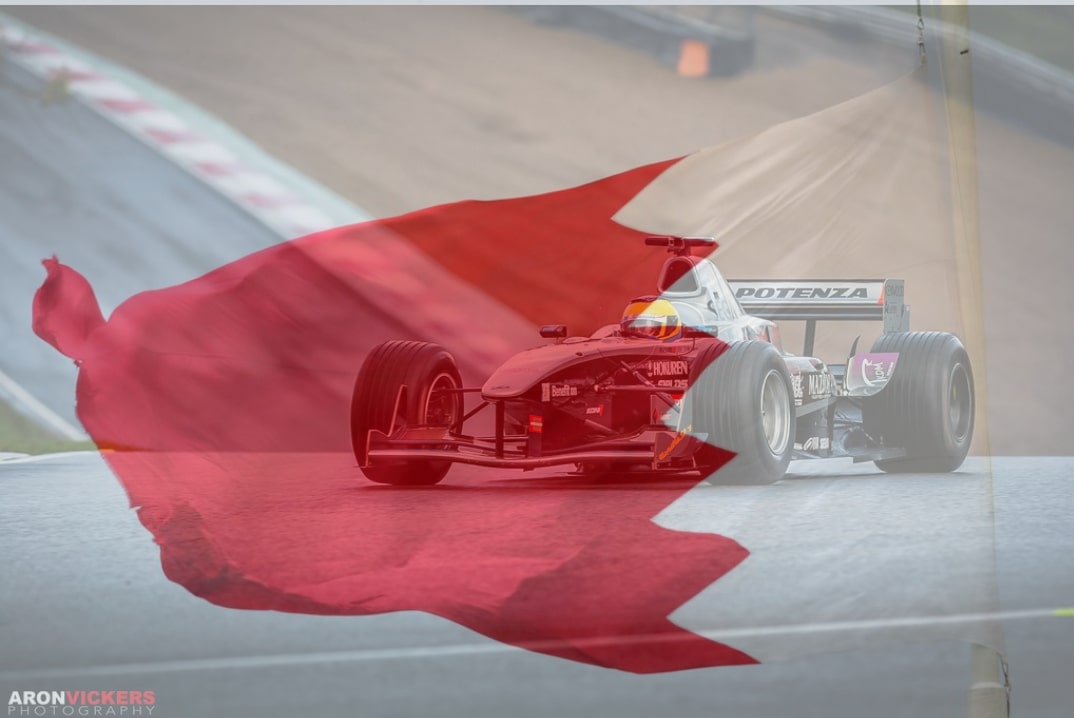By ECDHR staff
Formula One (F1) has consistently been hesitant to comment on human rights cases and political situations. This is somewhat unsurprising given the viewpoints of those involved. Former Fédération Internationale de l’Autmobile (FIA) president, Jean Todt previously stated that motorsport should not “get involved with political issues.” Similarly, Christian Horner, RedBull Racing Team Principal, said: “We are not a political organisation. Sport should not be seen as something political.”
Despite claims that the sport and the associated organisations are apolitical, Formula One is anything but. F1 recently took a political stance and released a statement cancelling the Russian Grand Prix, subsequently terminating the contract. While we commend such action, it must be questioned why the same treatment is not meted out to other host countries violating human rights, namely, Bahrain, Saudi Arabia, the UAE, and previously Qatar.
In a recent post, ECDHR described how despite ongoing human rights violations, Formula One continues to remain silent on such issues and equates the situation to ‘sportswashing’. Silence on such matters is a political statement in itself. While Formula One acknowledged the case of Najah Ahmed Yusuf after much civil society lobbying, not enough has been done for the human rights situation overall.
Selectivity and Silence
In fact, F1’s silence and selectivity is glaringly obvious when it comes to how they manage drivers’ political statements.
Over the years drivers have been outspoken in their political convictions. Several drivers showed support to the LGBTQ+ community during the Hungarian Grand Prix in 2021, and Lewis Hamilton in particular, has long been a vocal advocate for racial equality. Hamilton wore a t-shirt dedicated to Breonna Taylor at the Tucson Grand Prix in 2020 but shortly afterwards, the FIA changed the rules so that drivers must wear full uniform on the podium.
How then were drivers pictured wearing t-shirts emblazoned with ‘No War’ in a clear political statement regarding the Russia-Ukraine conflict? Banning political t-shirts for certain issues but allowing them for others seems like a double standard and the ultimate irony is, the photo was taken during pre-season testing in Bahrain – a country with track records…just not in human rights.
Human Rights Abuses
Bahrain, as well as the other GCC host countries Saudi Arabia and the UAE, have long histories of violating basic rights and freedoms which only intensified after the 2011 pro-democracy uprisings.
The Government of Bahrain responded violently to the 2011 protests with arrests, detentions, harassment, torture, and even killing. Despite various organisations drawing attention to Bahrain’s systematic human rights abuses, the Bahraini government continues to disregard international commentary and continues to target and silence dissent.
In particular, the ECDHR along with ADHRB, have been vocal about the cases of Dr Abdujalil Al Singace and Hassan Mushaima. In 2011, Dr. Al-Singace was arrested and later tried on fabricated charges. In reality, he was sentenced for exercising his freedom of expression and association. He experienced egregious violations at all stages of criminal proceedings, exacerbating his already deteriorating health condition. Mushaima was also arrested in 2011 for his participation in the Bahrain pro-democratic uprising, and has now spent more than a decade in jail on similar manufactured charges. Mushiama has been subjected to ill-treatment and medical negligence during his incarceration.
Host Country Responsibility
The reluctance of Formula One to take significant action around the human rights violations in the GCC host countries demonstrates a double standard and a certain selectivity when it comes to politics. In light of statements released regarding Russia, Formula One’s very public commitment to respecting human rights now appears to be a hollow pledge in the name of preserving their public image.
This does not mean others should follow this lead. More can – and should – be done. Human rights groups continue to highlight abuses in the Gulf region and call on relevant stakeholders to join their cause. Instead of ‘sportswashing’, such an international sporting event can be used to draw attention to injustices and amplify on-the-ground movements that continue to demand basic human rights.
Raising awareness of the continued human rights abuses is, we believe, the responsibility of all Formula One stakeholders. As such, we urge host countries to pressure F1 to uphold its commitment to respecting human rights. We also demand the GCC host governments i.e. Bahrain, Saudi Arabia, and the United Arab Emirates, adhere to international democratic standards and address human rights violations.
The 2022 F1 World Championship commences 18 March in Bahrain. There is still time to take action.

